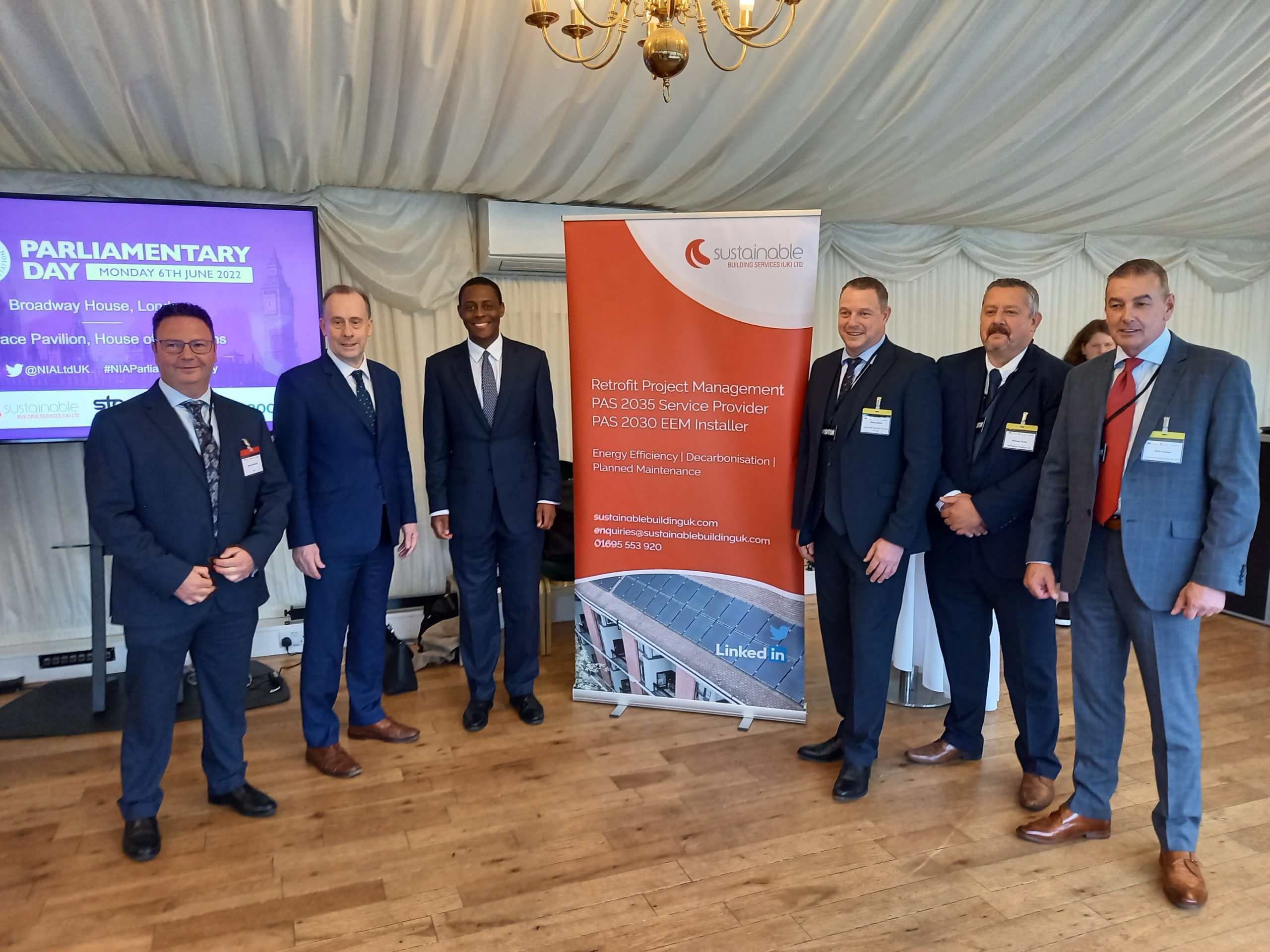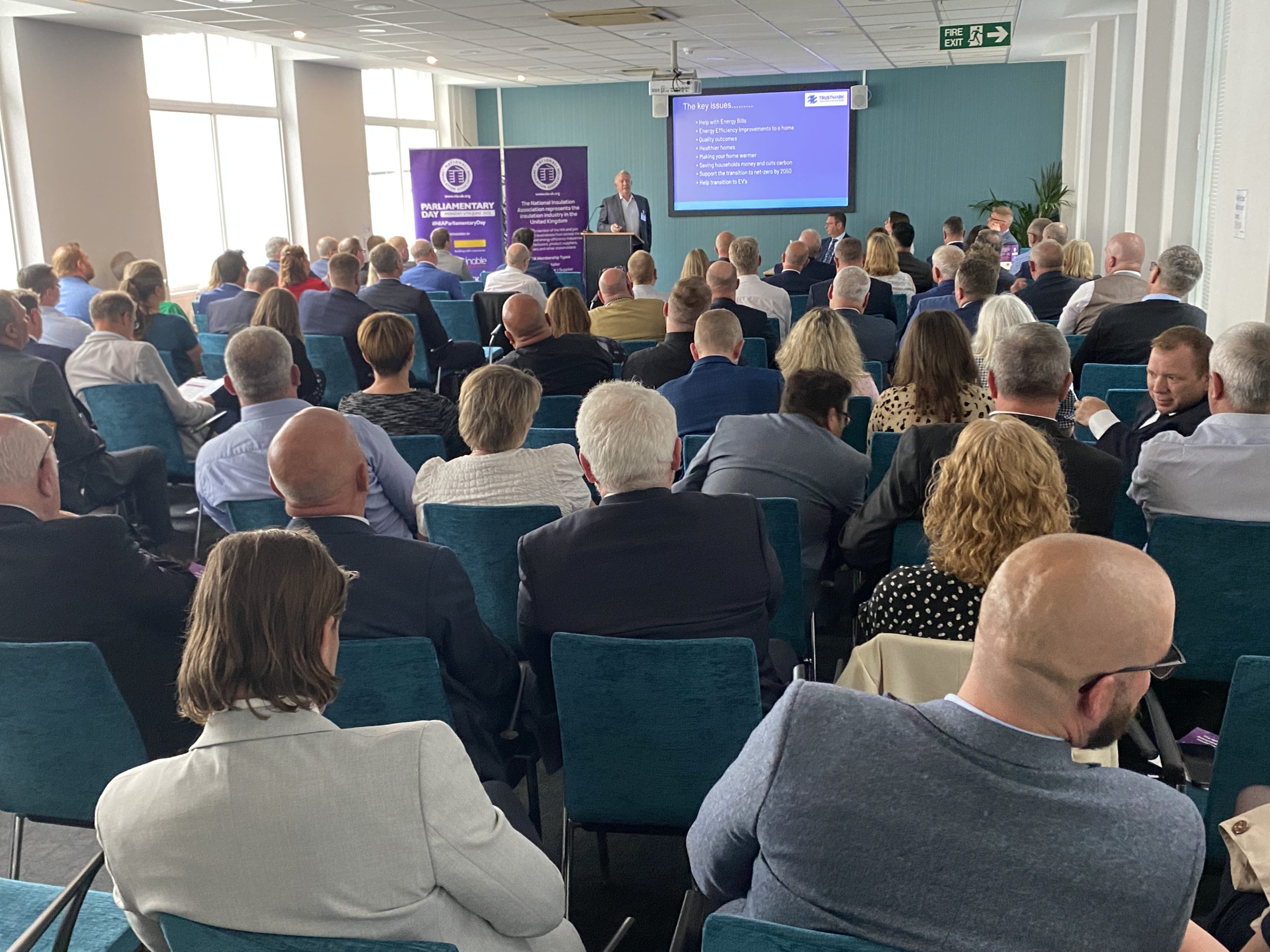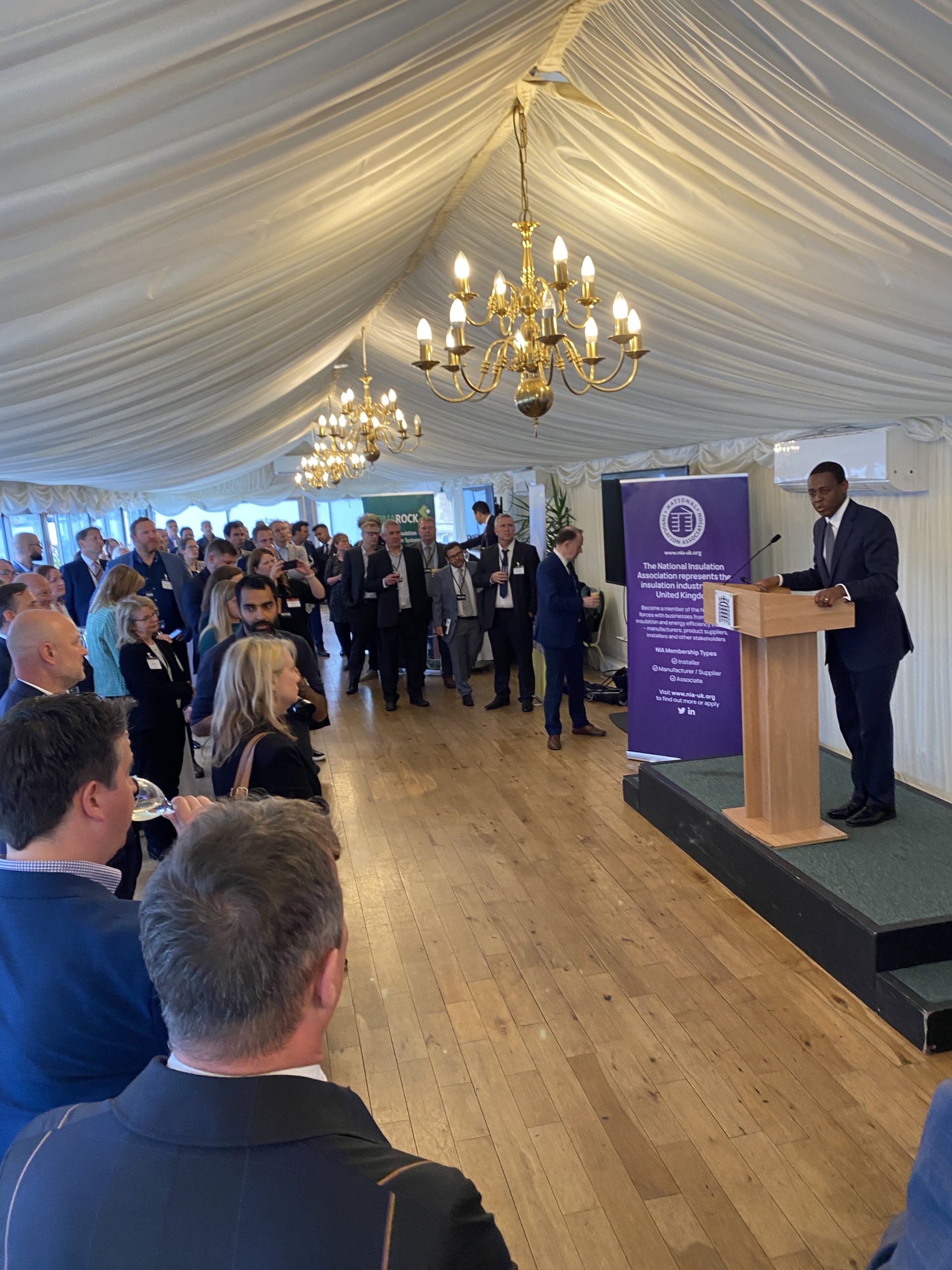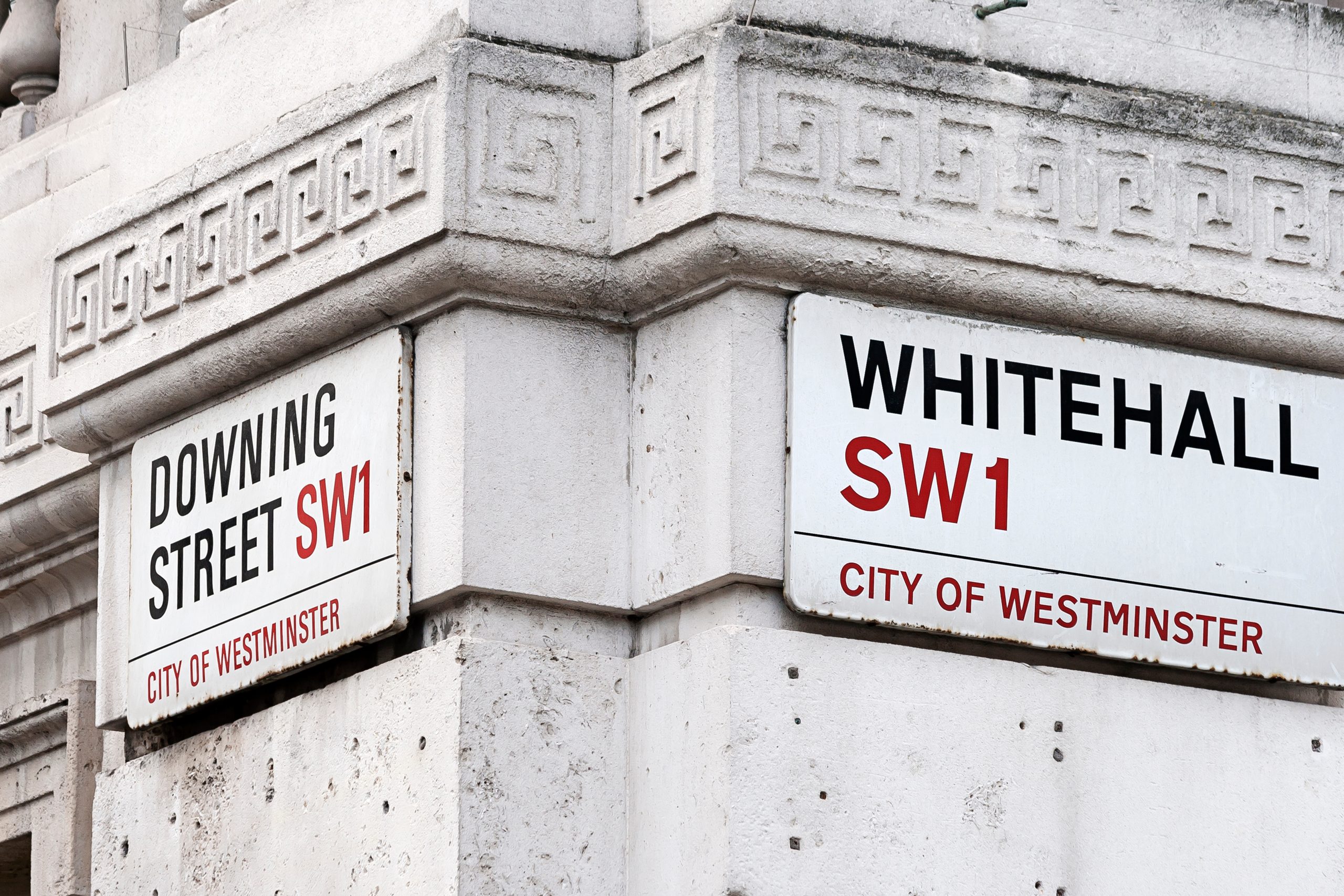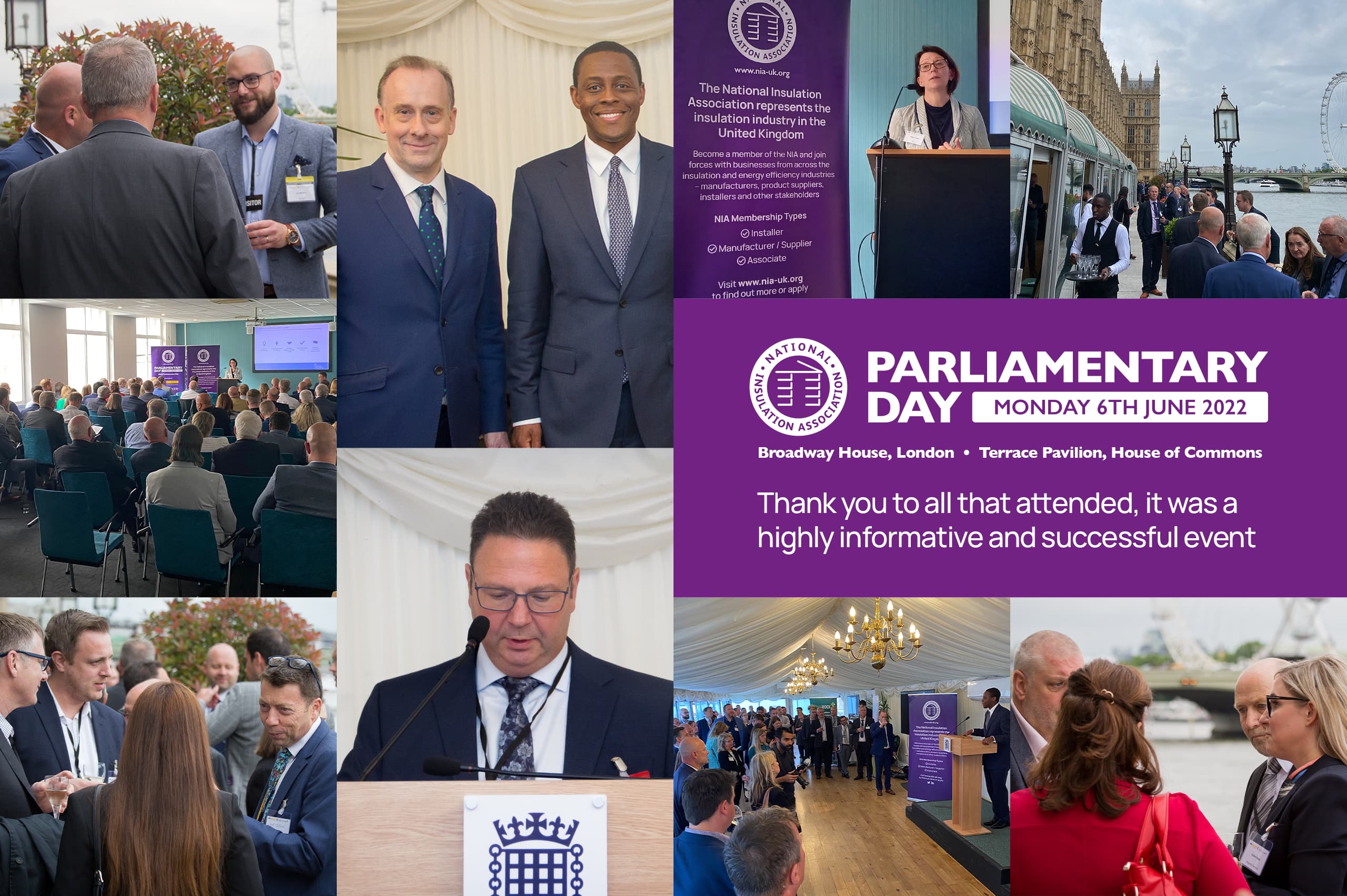
Energy efficiency industry gathers for the National Insulation Association’s first Parliamentary Event at the prestigious Pavilion Terrace, House of Commons.
It was fantastic to see over 130 attendees join the National Insulation Association’s (NIA) first ever Parliamentary event on 6th June 2022. The event aimed to bring people together across the insulation sector, celebrating the hard work that industry has done so far, and to look ahead at the priorities and opportunities. Government and Industry speakers covered an array of important topics, such as the role of insultation in reaching net zero and helping to alleviate fuel poverty, and the subsequent challenges faced. A clear message was communicated throughout the day, highlighting the importance for collaboration amongst industry to uncover solutions to challenges, and it is an exciting time of unprecedented opportunity for the sector.
The NIA would like to thank the sponsors for supporting the event; PermaRock Products Ltd, Sustainable Building Services (UK) Ltd and Sto Ltd.
The day started at Broadway House in Westminster, where Derek Horrocks, Chairman of the NIA opened the event by welcoming everyone, advising that the day should be seen as an opportunity to celebrate the hard work of industry. Fiona Chestnutt, Policy Lead for the NIA Secretariat next spoke about the intention of the Secretariat to produce a policy paper to put to government in Autumn, to understand the role of insulation in the road to net zero and in lowering fuel bills to help mitigate the fuel poverty crisis.
Ffiona Hesketh from the Department for Business and Energy and Industrial Strategy (BEIS) spoke about current energy efficiency and decarbonisation funding available, its lessons learned from previous schemes and a look ahead to the next three years, noting the importance for a reliable supply chain. We also heard from Simon Ayers at Trustmark, who conveyed a positive message about the progress made by industry so far in delivering quality products and services. He also presented the scale of opportunity ahead to focus on whole house retrofit to provide healthier, better efficient, and lower cost to heat homes. The first part of the day was rounded off by David Pierpoint from the Retrofit Academy who presented a roadmap of how we can reach the goals and targets needed to deliver their mission of 27 million professionally installed domestic retrofits by 2050, highlighting the importance that skills, training and qualifications will play
Attendees then made their way to the prestigious Houses of Parliament to the Pavilion Terrace where we soaked in the atmosphere and views. MP Bim Afolami was first to speak and presented a powerful and clear message that government is committed to a net zero carbon future and emphasised the importance for industry to engage and provide clear, realistic solutions to help government pave the way to meet its ambitious targets.
Lord Callanan, Parliamentary Under Secretary of State (BEIS) then spoke about the important role that insulation has to play in the transition to net zero, and in helping to lower energy bills highlighting the need for a fabric first approach.
‘We all know that we have a lot more still to do, but we are putting in the foundations and we have made some measurable progress so far with a clear path of where we need to get to. We know that with the support of organisations which are committed to excellence, we will be able to pass the finish line and reach net zero in 2050.’
The NIA are in talks to hold a further event this year in Scotland. Until then, this event was one to remember for the NIA being its first.
NIA members have the opportunity to influence policy and have their voice heard to drive higher levels of quality and professionalism. For more information about the NIA and how to become a member, please click here, or contact the NIA at info@nia-uk.org.
